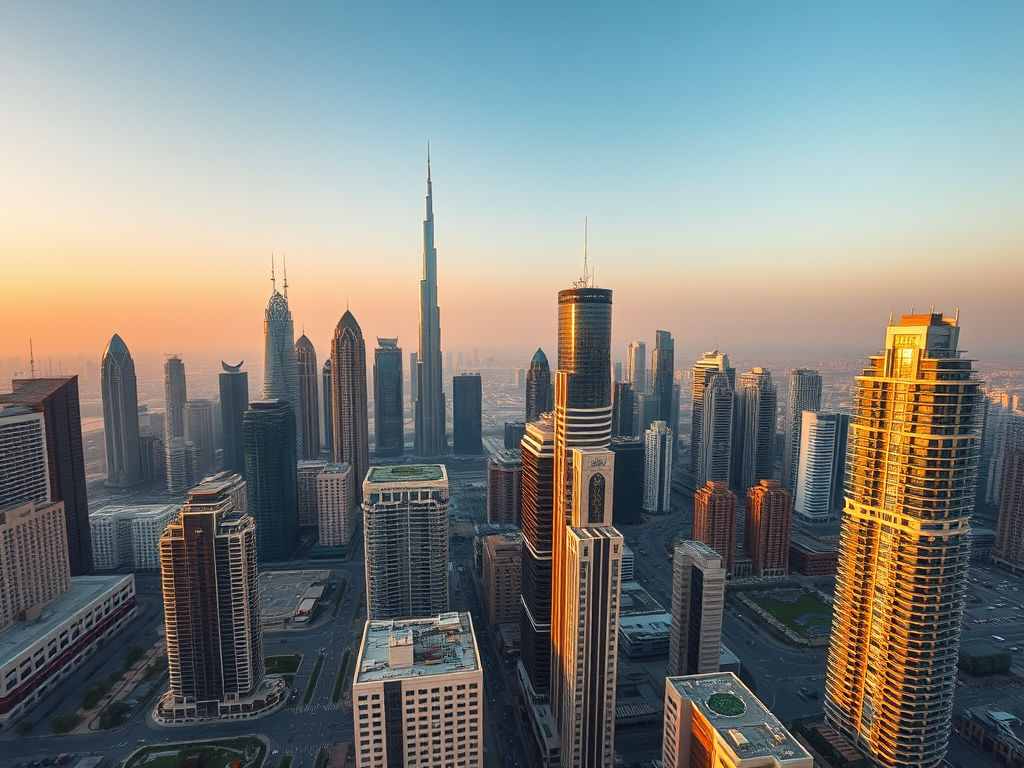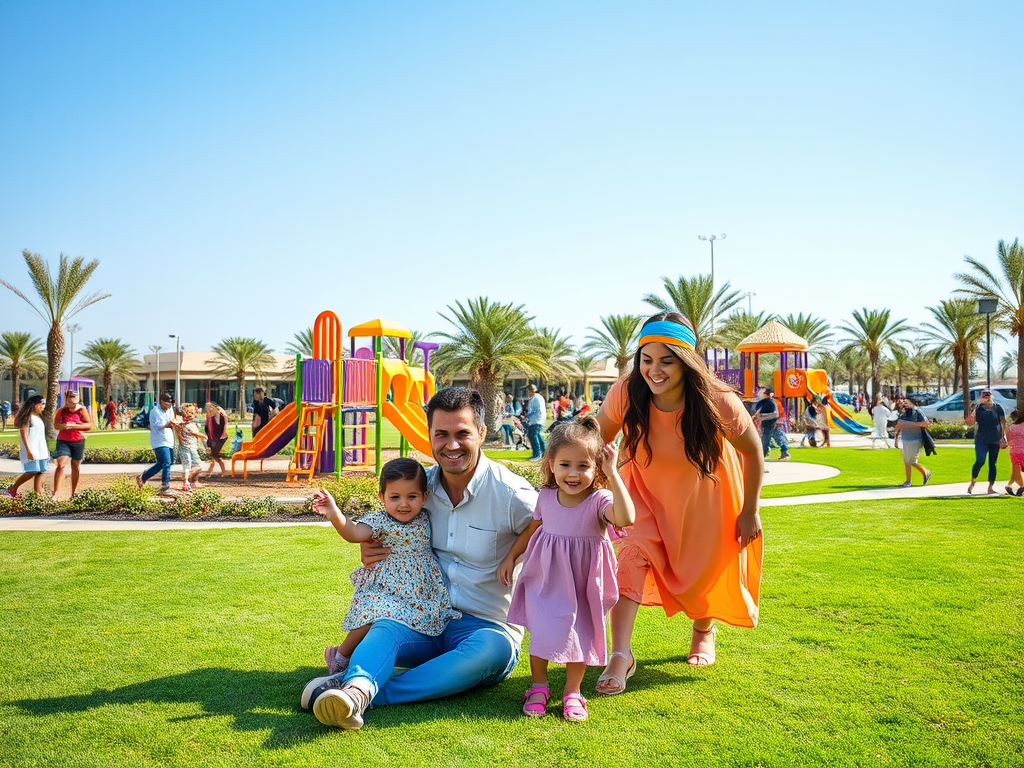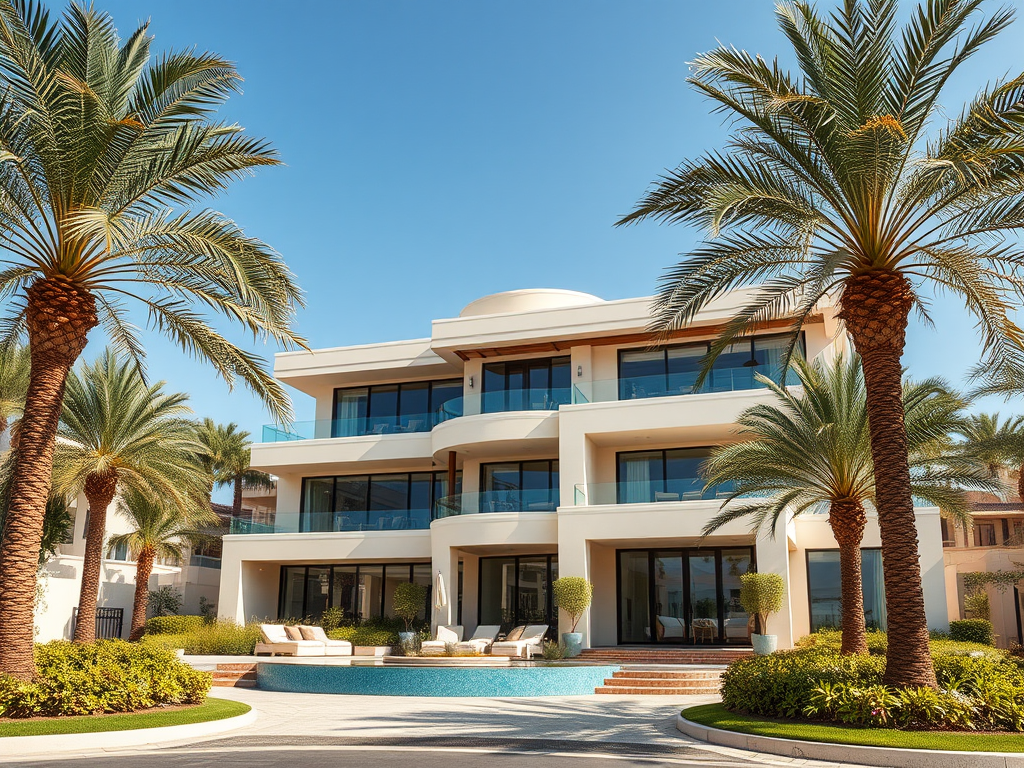The rapid evolution of Dubai’s real estate market continues to captivate investors and homeowners alike, as it mirrors the dynamic growth of the city itself. This sector has transformed dramatically over the years, offering myriad opportunities for prospective buyers and investors. However, with such opportunities come inherent risks and challenges. As we approach 2025, numerous trends and forecasts are starting to emerge, shaping the landscape for what lies ahead. Understanding these trends can help investors make informed decisions and capitalize on potential growth. With various factors coming into play, the question remains: what does the future hold for Dubai’s real estate market?
Current State of the Dubai Real Estate Market

In recent years, the Dubai real estate market has experienced a roller-coaster ride of fluctuations. From skyrocketing prices to unexpected downturns, the market has been anything but predictable. However, examining the current state can offer valuable insights for the future. The recovery momentum gained after the pandemic has instilled a sense of optimism among developers and buyers. There has been a noticeable increase in transactions driven by pent-up demand and favorable financing conditions. These dynamics have set the stage for a potentially robust market by 2025.
| Metric | 2021 | 2022 | 2023 | 2025 Forecast |
|---|---|---|---|---|
| Average Property Price (AED) | 1,300,000 | 1,250,000 | 1,350,000 | 1,450,000 |
| Rental Yield (%) | 6.5 | 7.0 | 6.8 | 7.2 |
| Transactions (+/- %) | N/A | 20 | 15 | 10 |
Factors Influencing the Market

Numerous factors contribute to the fluctuations and growth of the Dubai real estate market. Understanding these influences is pivotal for anticipating future movements. Economic conditions within the UAE, alongside foreign investment trends, play a crucial role. Additionally, the stability of the currency and geopolitical factors also hold significant weight. As we delve into these elements, it’s essential to consider both qualitative and quantitative data that underlie market dynamics. Stakeholders must remain vigilant and adaptive to these changes to seize opportunities as they arise.
Economic Factors
The UAE’s economic performance significantly impacts the real estate sector. A growing economy invites foreign investment, thus boosting property demand. Trends indicate that affluent expatriates are keen on investing in Dubai, drawn by its tax benefits and lifestyle prospects. The stability of the Emirati dirham plays an integral role, affecting both local and international investors. Additionally, global market influences, such as oil prices, can indirectly sway property values. Consequently, understanding these economic signals is vital for anyone considering an investment.
Regulatory Changes
Government policies frequently shape the real estate landscape, creating a framework within which the market operates. Recent regulatory adjustments have made it easier for foreign investors to enter the market, including initiatives like the Golden Visa program. The reduction in certain taxes aims to entice more buyers, facilitating market growth. Stakeholders must keep abreast of ongoing regulatory changes to navigate the market effectively. Adapting to these developments can provide a competitive edge in identifying investment opportunities. Being informed is essential for any serious player in the real estate domain.
Emerging Trends in Dubai Real Estate
As Dubai evolves, so do the preferences and demands of its real estate landscape. Identifying emerging trends is crucial for stakeholders wishing to stay ahead. One noticeable shift is the growing demand for sustainable and green living options. Eco-friendly developments are on the rise, driven by both consumer preferences and government incentives. Another trend involves the increasing popularity of mixed-use developments that integrate residential and commercial spaces. Understanding these trends will be instrumental in shaping investment strategies moving toward 2025.
In the competitive Dubai real estate market, certain property types are gaining traction. Investors should pay attention to the following categories:
- Luxury Villas: The demand for upscale living continues to flourish, particularly among high-net-worth individuals.
- Affordable Apartments: First-time buyers and expatriates are increasingly seeking affordable housing options in central locations.
- Commercial Properties: With Dubai’s position as a global business hub, the demand for commercial real estate remains strong.
- Eco-Friendly Developments: Sustainable housing is becoming a key selling point as buyers become more environmentally conscious.
Forecasts for 2025
As we look further into the future, analysts suggest several forecasts regarding the Dubai real estate market. Anticipating price changes and identifying potential challenges is essential for strategic planning. Various economic indicators signal positivity, yet uncertainties remain. By analyzing both growth opportunities and possible risks, stakeholders can create a balanced outlook for the future. Remaining informed and prudent in investment decisions is crucial for navigating a rapidly evolving market.
The expected trajectory of property prices in Dubai suggests a steady increase towards 2025. Analysts forecast an annual price increase of 5-10% as demand continues to outstrip supply. Factors supporting this upward trend include the influx of expatriates and the government’s ongoing investments in infrastructure. Additionally, the revival of international tourism is expected to bolster rental yields, further enhancing property values. The interplay between supply and demand will remain imperative in shaping market trends moving forward.
Conclusion
In conclusion, the Dubai real estate market is poised for an exciting journey as we approach 2025. With numerous factors influencing its trajectory, understanding the current trends and forecasts is more vital than ever. Stakeholders must remain adaptive, staying informed about economic conditions, regulatory changes, and emerging market demands. While the landscape presents both opportunities and challenges, knowledge and timing will be key in navigating this vibrant market. Engaging with the evolving trends will allow investors to position themselves favorably in this ever-changing environment.
Frequently Asked Questions
- What is the projected growth rate for Dubai’s real estate market by 2025? The Dubai real estate market is expected to grow steadily, with estimates suggesting an annual growth rate of approximately 5-7% leading into 2025.
- What types of properties are in high demand in Dubai? There is a noticeable demand for luxury villas, affordable apartments, and commercial properties, particularly in emerging neighborhoods.
- How do foreign investments affect the Dubai real estate market? Foreign investments significantly contribute to the market’s growth, attracting capital that enhances property values and development opportunities.
- What role do government policies play in shaping the real estate landscape? Government policies, including visa programs and ownership regulations, influence buyer sentiments and investment strategies, providing a stable environment for growth.
- Are there any risks associated with investing in Dubai real estate? Yes, risks include economic fluctuations, regulatory changes, and market saturation in certain segments, all of which can impact property values and investment returns.
